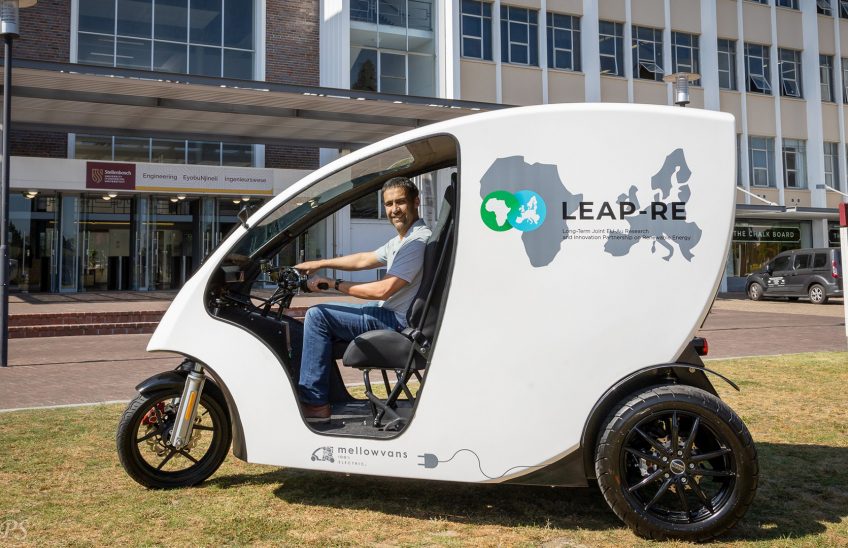One of the 13 projects funded under the ...
Continue →Partners
Project coordinator: Markus Lienkamp, Technical University of Munich, Germany
Project partners:
- Adama Science and Technology University (Ethiopia)
- Commissariat à l’énergie atomique et aux énergies alternatives – CEA (France)
- Technical University of Munich (Germany)
- Stellenbosch University (South Africa)
Main topic addressed: Productive uses and new applications of solar energy




Aim of SolChargE
SolChargE aims to develop a Stand-alone Solar Charging Station (SASCS) for rural transport hubs based on circular principles in Sub-Saharan Africa.
Background
Sustainable transportation systems is of paramount importance for rural development in Sub-Saharan Africa. Yet, there is a lack of expertes in the area, to design, to manufacture, test & commission such systems locally. Electric Vehicles technology and smart transport systems can provide clean mobility solution, but grid access is very difficult due to a number of reasons including scattered setlement and poor economy.
To address these issues, SolChargE develops, builds, and pilots a novel stand-alone solar charging station (SASCS) for electric vehicles (EVs) as the central component of a decentralized transportation hub.
About the project
Technical designs and underlying business models are based on circular principles meant to reduce environmental impacts and increase local added value. Within the SolChargE project, the decentralized transportation hub will be jointly developed with South Africa’s Stellenbosch University (SBU), Ethiopia’s Adama Science and Technology University (ASTU), supported by the French Commissariat à l’énergie atomique et aux énergies alternatives (CEA), and subsequently tested in rural communities in South Africa (SA) and Ethiopia (ET).
The project SolChargE focuses on the issues of several stakeholders. Farmers’ and especially female heads of household’s inability to reach markets and extension services, Children, especially girls’ inability to attend school, community members who lack of access to healthcare are particularly targeted, as well as additional use cases. An electric vehicle developed by the Technical University of Munich (named “aCar”) is already operational in Ethiopia and will be the second central pillar of the decentralized transportation hub being developed. These preceding efforts will assure a successful project implementation, as the consortium can rely on existing partnerships and research infrastructure.
Expected Results
Specific expected results include:
- Increase local participation, and manufacture solar charging stations locally
- Capacity building both human & technolgical
- Gain new experiance & insight to carry out such project as the best technolgy transfer vehicle for the development oppotunity


